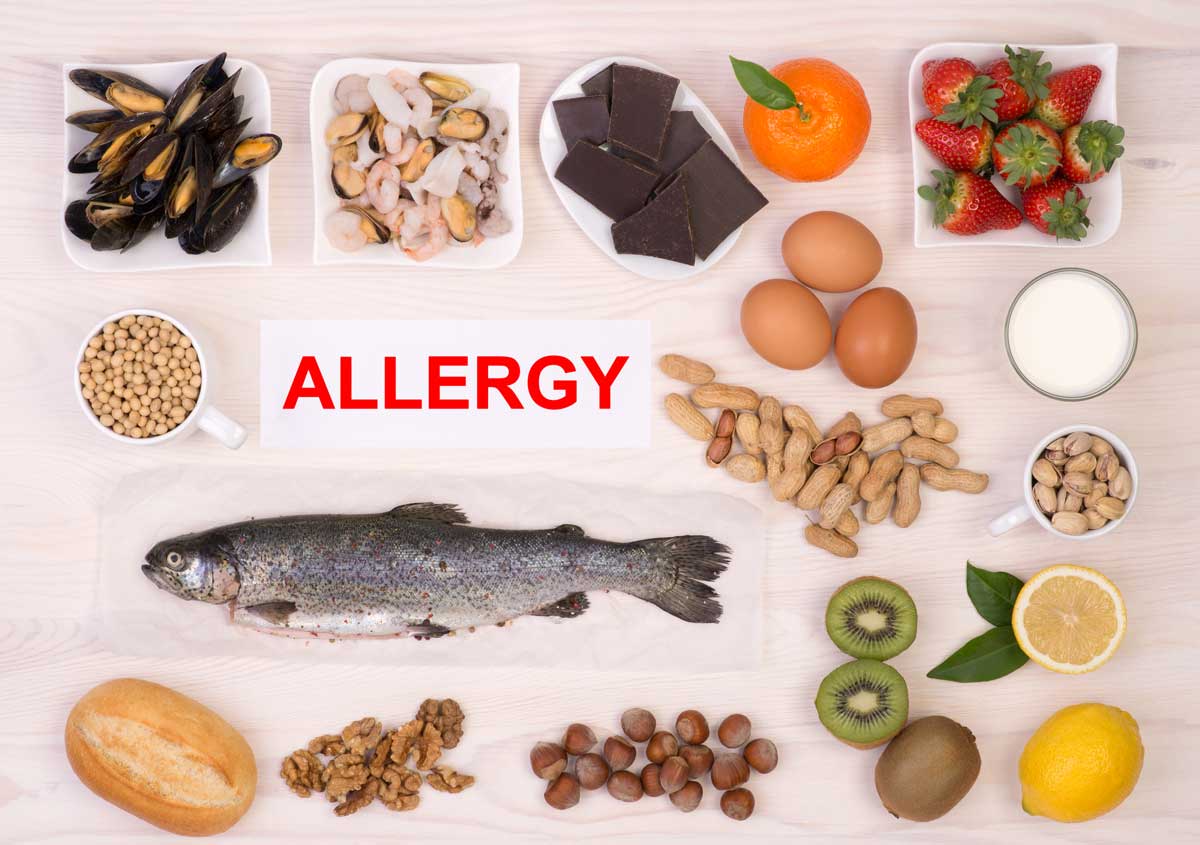Crystal Lake allergist discusses the difference between food allergies and intolerance

If you tend to have a certain reaction to any type of food, you may have wondered why. Food allergies such as celiac disease have led to a number of changes in the manufacturing of food products. Visit your grocery store and you will likely find the evidence of this on the numerous items marked “gluten free.” This type of food allergy only affects about one percent of the population. Those with celiac disease must be mindful about what they eat, because the ingestion of even small amounts of gluten results in an immune reaction that causes damage to the small intestine.
Gluten is not the only food item that is notorious for causing allergic response and gastrointestinal upset. Other common culprits include seafood, cow’s milk, eggs, and wheat.
Food intolerance
Intolerance to food occurs when the body lacks the enzyme necessary to process a component of the food. A common example is lactose. Intolerance may also be a reaction to an additive or chemical in a food, which can be a challenge if processed foods are regularly consumed. Initially, the indication that a food intolerance may exist is usually too subtle to really notice. However, the older a person gets, the more severe the reaction to a trigger food may become.
Symptoms of food intolerance include gas and bloating, diarrhea, and nausea.
Food allergies
When a true food allergy exists, exposure to a certain food item will prompt the immune system into action. Production of immunoglobulin E, or IgE, increases, as the body tries to defend itself against a perceived threat. While food intolerance often develops early in life, it is possible that a food allergy may occur at any time.
Symptoms of food allergies may occur at the slightest exposure to the allergen. The allergic response may present as gastrointestinal upset such as vomiting or diarrhea. Other symptoms include itching, hives, and difficulty breathing.
Food allergies can be confirmed through testing
Patients near Crystal Lake and Elgin are encouraged to visit Advanced Allergy & Asthma Associates if they suspect they have a food allergy. By introducing a small extract of the potential allergen and testing for IgE antibodies, we can make significant progress in ending unpleasant symptoms. Get the help you need to avoid allergies and live a healthy life. Call (847) 888-8802.
Share this Article
Back to Food Allergies Page








